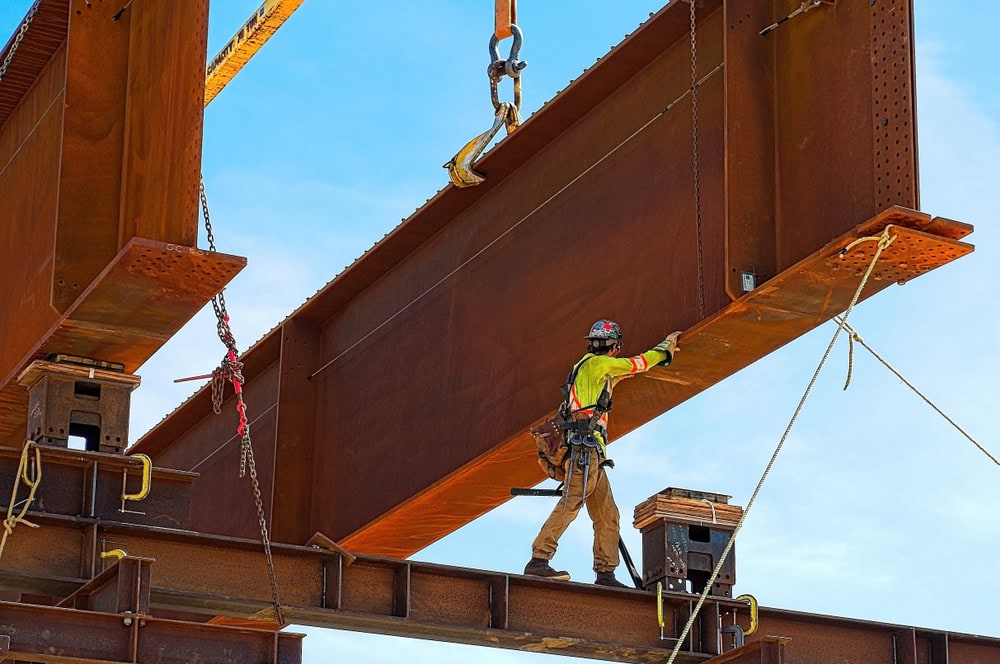Maybe it’s a dream job for now, but you can make your dream come true and become a licensed bridge builder in California! This lucrative career path will have you working frequently on public works jobs and other government-funded projects, which are often lucrative and steady streams of income.
In this article, we’ll help you mentally prepare for the amount of education and experience required for the start of a career in bridge building, as well as cover the critical details surrounding the professional licensing requirements that will allow you to work in this area of expertise.
Let’s find out how to become a licensed bridge builder in California!
What Kind of License Does a Bridge Builder Need?
Bridge builders need a Class A General Engineering Contractor License because of the specialized engineering knowledge required for the work. Securing a license as a bridge builder is a necessary step, not only to do work in the field but also to gain the requisite knowledge and expertise to operate in this highly mathematical field.
To become a licensed bridge builder, you also need a professional engineering license. Here are the steps you need to take to get a professional engineering license:
- Pass the Fundamentals of Engineering (FE) Exam.
- Gain Work Experience by working under the supervision of a licensed professional engineer for at least four years. This is essential to get your CSLB license.
- Pass the Principles and Practice of Engineering (PE) Exam. After you’ve acquired experience in the field, you’ll take this exam where you apply knowledge specific to your focus; in your case, structural engineering for bridge builders.
- Apply for your Class A Engineering license and cover the payment for application fees.
- Be prepared for additional requirements. You may have to take an ethics exam or appear for interviews.
- Maintain your license. Keep up with the license renewal requirements and complete all the continuing education you need to keep your career going. Staying up to date with best practices and ethics will help you keep your license and keep you working.
How Much Education Does a Bridge Engineer Need?
It’s very common for bridge engineers to hold a bachelor’s degree in civil engineering or something similar, as bridge building requires substantial engineering, physics, and mathematics knowledge. Some bridge engineers pursue advanced degrees to set themselves up for bigger jobs. This also opens up opportunities for research and development roles.
In any case, bridge builders need to get practical experience in the field in addition to classroom education. Engineering internships and entry-level engineer positions at construction companies, government agencies, or engineering firms, can help them expand their knowledge and develop real practical skills.
As a bridge builder, you must keep yourself informed about current developments, technologies, and regulations in the industry. Professional organizations such as the American Society of Civil Engineers (ASCE) and attending conferences and seminars will help you stay abreast of any developments in this niche.
Bridge builders may also pursue additional certifications related to bridge engineering and construction. These extra credentials demonstrate expertise and help bridge builders stand out in the hiring process and win bids from potential clients looking for someone they can trust.
Some relevant certifications include Certified Bridge Inspector (CBI), Bridge Safety Inspector (BSI), and Certified Structural Engineer (SE), but many more certs can help build credibility in you as an expert.
Continuing education is also important in bridge engineering. All bridge builders must engage in lifelong learning and stay updated with the latest techniques, materials, and design methods in bridge engineering.
Is Bridge Construction in California Unique Compared to Other Places?
Bridge construction can be different depending on geographical, environmental, and regulatory factors. When it comes to bridge construction, California definitely presents its challenges.
The terrain is so diverse and the seismic activity is pretty chaotic. With all this in mind, engineers in California need to account for earthquake-resistant design.
We don’t have the time or space to go too deep into the unique realities of California bridge building. The best way to find more information about bridge building in California is through the California Department of Transportation (Caltrans).
How Is Tech Changing the Lives of Bridge Engineers?
The field of bridge engineering is continually evolving, and advancements in tech only hasten that evolution. You might remember our blog post that touches on Building Information Modeling (BIM). BIM helps display 3D models of bridges, improving design accuracy and collaboration.
You’re also seeing a ton of automation and artificial intelligence (AI) and virtual reality (VR) and augmented reality (AR) applications come online to aid bridge engineers in visualization and testing.
Structural Health Monitoring (SHM) is another technological innovation that’s bringing bridge-building into the future. SHM uses sensors to monitor bridge health in real-time.
Bridge engineers in California must also work with sustainable design and materials and practices to reduce negative environmental impact.
Professional Advancement for Bridge Builders
As bridge builders gain experience and expertise in bridge engineering, new doors start to open for them professionally. As they become qualified for more advanced, higher-level opportunities, they should take stock of their new, lucrative, professional options.
Contractors who build bridges could become senior bridge engineers. They could also take on project manager positions. They might even wind up starting their own bridge engineering firm. The sky is the limit for bridge builders who know what they’re doing and can be trusted to deliver on their word!
Summary
Becoming a licensed bridge builder is a multifaceted journey. It requires education, hands-on experience, and obtaining professional licenses. And advanced degrees can help bridge builders step up to fill higher-level positions.
Whether you’re pursuing a career in California or elsewhere, safety and innovation will always be at the core of bridge engineering. Bridge builders must remain engaged with how advancements in tech are evolving the industry to ensure that they themselves evolve with it.

